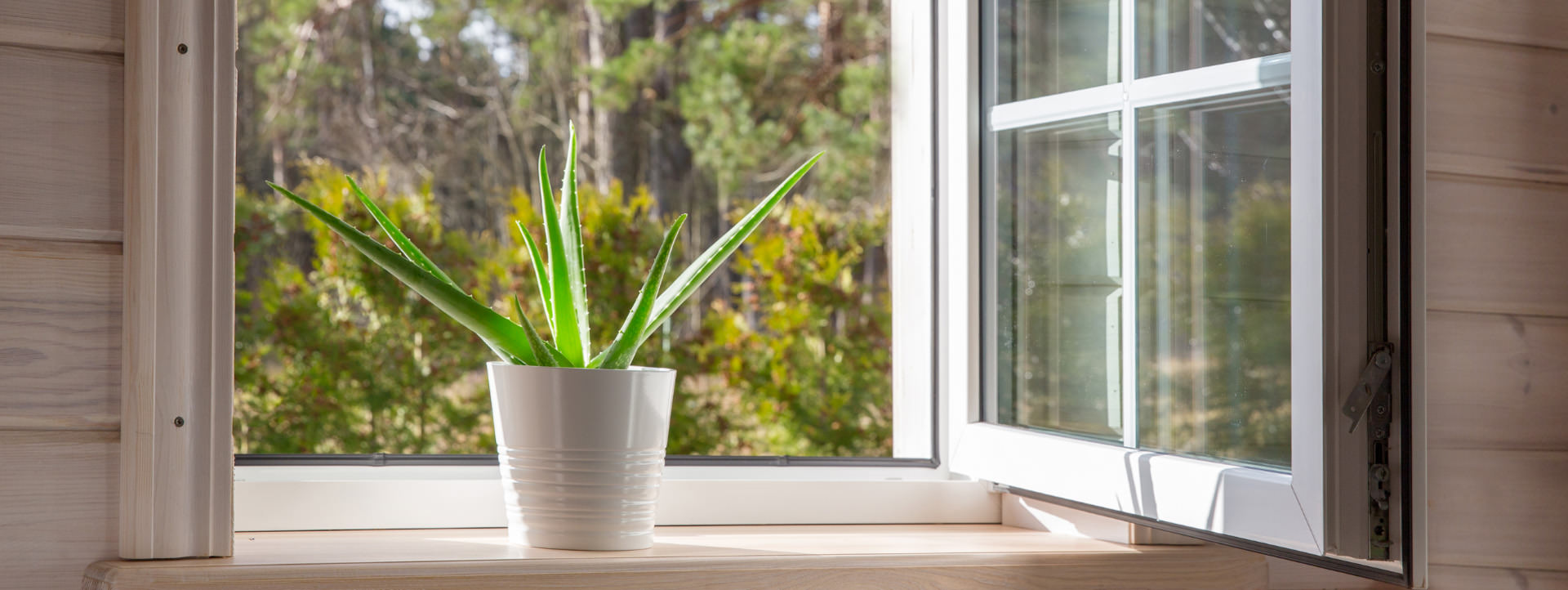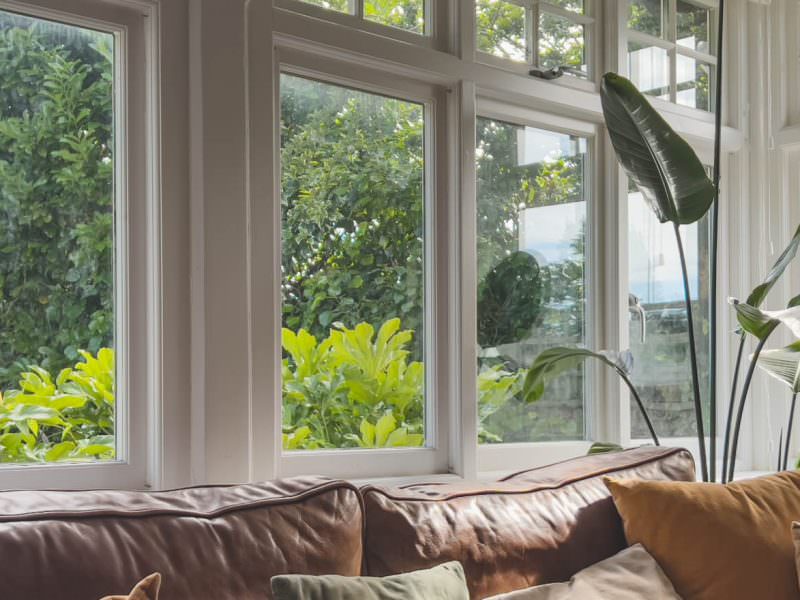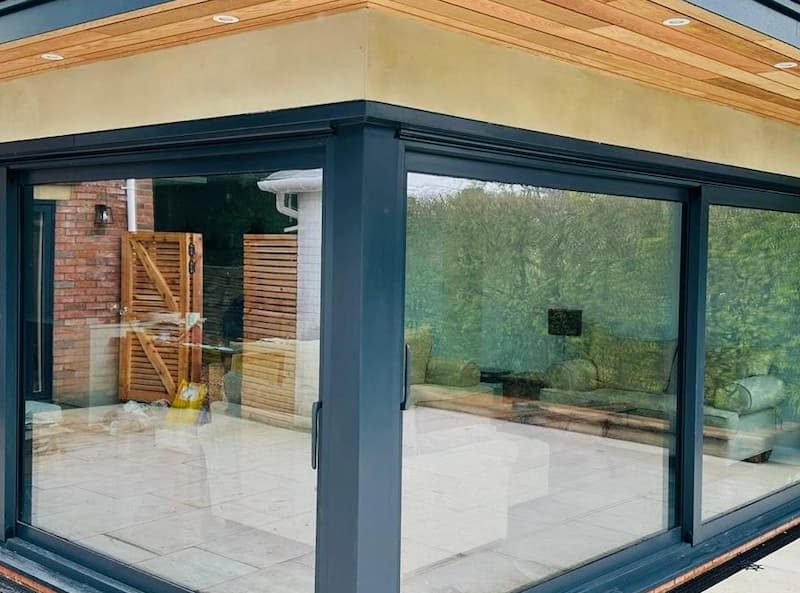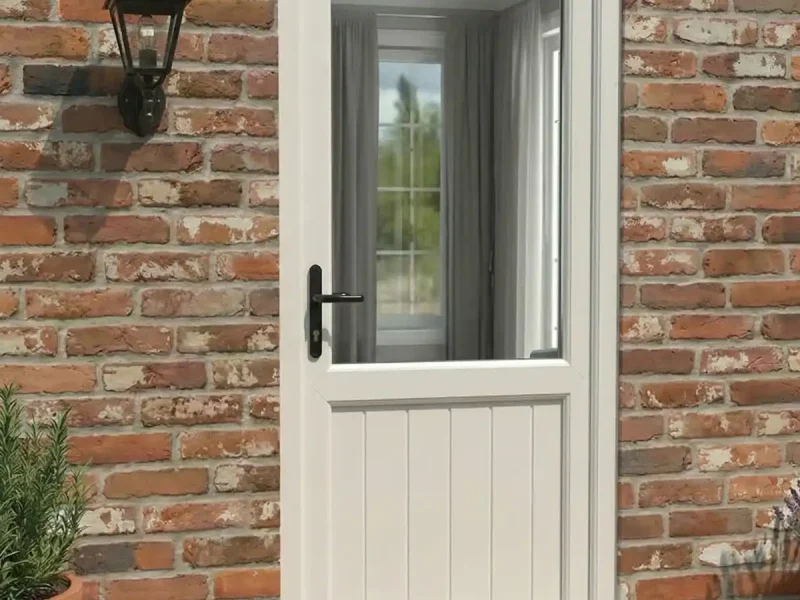
Timber - PVC - Aluminium - Windows, Doors & Conservatories in Hampshire
How to maintain uPVC windows
How to maintain uPVC windows
Do I need to maintain my uPVC windows?
PVC is ‘low maintenance’, not ‘no maintenance’. It’s a common misconception that PVC-U windows don’t require any care at all. They have moving parts and those require occasional oiling. They’ll also pick up airborne dirt and debris – just like anything else.
But the big advantage is that with a very small investment of your time and without the need for harsh chemicals or paints, you can keep them looking their very best, year after year, after year.
How to clean PVC windows – standard white double-glazed windows
Standard white double-glazed windows are the easiest to keep looking their best, requiring only a very minimal level of maintenance.
It may only look like plastic, but your energy efficient PVC-U windows are the product of a highly sophisticated manufacturing process and feature a massive amount of technology.
New energy efficient uPVC double-glazed windows use a employ a specially designed multi chamber internal structure, now often made from recycled PVC, and high-quality external finish.
It’s the quality of this external finish which makes PVC windows so easy to maintain. If you put uPVC under a microscope it’s exceptionally smooth and as a consequence, it collects less dirt and dust, and where it does, it doesn’t become engrained, making it much easier to shift.
In most cases a simple wipe down with a damp cloth is all you need to do to remove the build-up of dirt including pollens.
Where dirt or stains are more stubborn you can use a specialist PVC cleaner. Don’t be tempted to use an abrasive cleaner. It may deliver faster results this time around but in the process you’ll damage the smooth surface of the window, creating lots of micro-scratches which will then collect dirt and ake it much harder to clean next time around.
Do
- Wipe down uPVC double glazed windows regularly with a damp cloth
Don’t
- Use abrasive cleaners e.g. Ciff/Jiff – they’ll damage the surface of your window frames
How to clean foiled and woodgrain double-glazed windows
Foils give homeowners all of the advantages of PVC windows but with a little more design flexibility. Matching into a specific design scheme, or if you’re lucky enough to be the owner of a period property, its unique character, delivers a distinct set of advantages.
This includes allowing you to develop a unique statement design or to replicate the appearance of a traditional timber or aluminium window in a low maintenance and high performance upvc product.
A new generation of PVC-U windows offers slim sightlines, a strong and traditional aesthetic including flush casements and mechanical jointing. For example Residence 9 or Style-Line from Deceuninck or Beaumont window from Dempsey Dyer, offer significant design flexibility and finish. This is still delivered in an energy efficient and a low maintenance PVC-U window.
Again, in most cases a regular wipe down with a damp cloth or mild detergent will be enough to keep your foiled windows looking their best.
It’s really important however, that you don’t use abrasive or solvent cleaners as these can weaken the bond between the foil and the window substrate, leading to failure or discolouration.
Do
- Wipe down regularly with a damp cloth
Don’t
- Use abrasive cleaners e.g. Ciff/Jiff – or solvent based cleaners
How to clean window glass
The first thing is to pick your moment. A dry but dull and overcast day is perfect. If it’s too hot, cleaner will simply dry onto glass, creating streaks.
Before you reach for a sponge or cloth, give the windows a quick sweep with a soft brush to remove debris. This will stop it being carried into drainage holes as you wash your windows, potentially causing blockages.
Again, don’t use harsh chemicals. Either opt for a dedicated window cleaner or simply add a mild detergent to warm water and use a sponge or scrubber to remove debris and dirt. Then reach for your squeegee!
It’s an invaluable tool for cleaning windows, removing excess water and dirt and delivering a streak-free finish. We recommend starting in one of the top corners of your window and then working in horizontal strokes down the window.
Do
- Use a mild soapy water or dedicated detergent and a squeegee!
Don’t
- Clean windows on very hot or sunny days
Is it ok to clean self-cleaning glass?
It sounds like a paradox but self-cleaning glass will occasionally need a wipe down too. It’s really important to take care not to damage special coatings (the self-cleaning element in the glass), so use only a very diluted and mild detergent and make sure it’s colour free. Also, in this case leave you squeegee and sponge in the cupboard, using only a very soft cloth to wipe over the surface.
As with glass and frames in general, avoid abrasive or solvent-based cleaners.
Check for blockages
Most PVC widow systems feature special drainage holes which allow water, trapped between the frame and opening sash or frame and cill to escape.
It’s really important to make sure that these remain clear, either by brushing then out, or if you can gain access safely, use a vacuum to remove any build up of leaves, hair or other items from the track that could be carried by water into drainage holes and prevent draining of water.
Do
- Regularly brush or hoover tracks between the frame and opening sash
Don’t
- Try and flush debris through the drainage hole. It’s much easier to remove it while it’s dry.
How to maintain window and door hardware and hinges
It’s also important to make sure that your windows and locking mechanisms are properly lubricated as wells as seals around the door.
We recommend a silicone-based lubricant, as it’s less likely than oil-based ones to gum up hinges and locking mechanisms over time. You can also apply a small amount to a cloth and wipe it along tracks and around seals to provide a little extra lubrication.
Finally, window and door handles should also be cleaned using a mild detergent. You can do this while wiping down frames – but again, avoid solvents and abrasive cleaners.
Do
- Use a mild soapy water to clean handles and letter plates
- Use a silicone lubricant to ‘grease’ hinges and locking mechanisms
Don’t
- Use a WD40 or heavy oil to lubricate windows and locks as it may gum them up.
And the good thing is that you don’t need to do any of these things very often. Every three or four months is fine. And if clean and maintain your energy efficient uPVC double glazed windows and doors regularly, as well as looking great, they’ll also last longer saving you money.
Alternatively, if you think your windows are beyond redemption, or you’re looking for help in planning your next home improvement, or simply want to talk about any of the points raised in this discussion, please don’t hesitate to contact me or a member of the team for more by calling 01264 359355 or emailing email [email protected]
- Certified Fire Doors: The Firecore Collection - 15 January 2026
- Premium Hardware for Profile 22 Doors: Ultion Sweet & Fab&Fix - 15 January 2026
- 2026 Design Trends: The 4 Window & Door Styles Defining the Year - 19 December 2025














